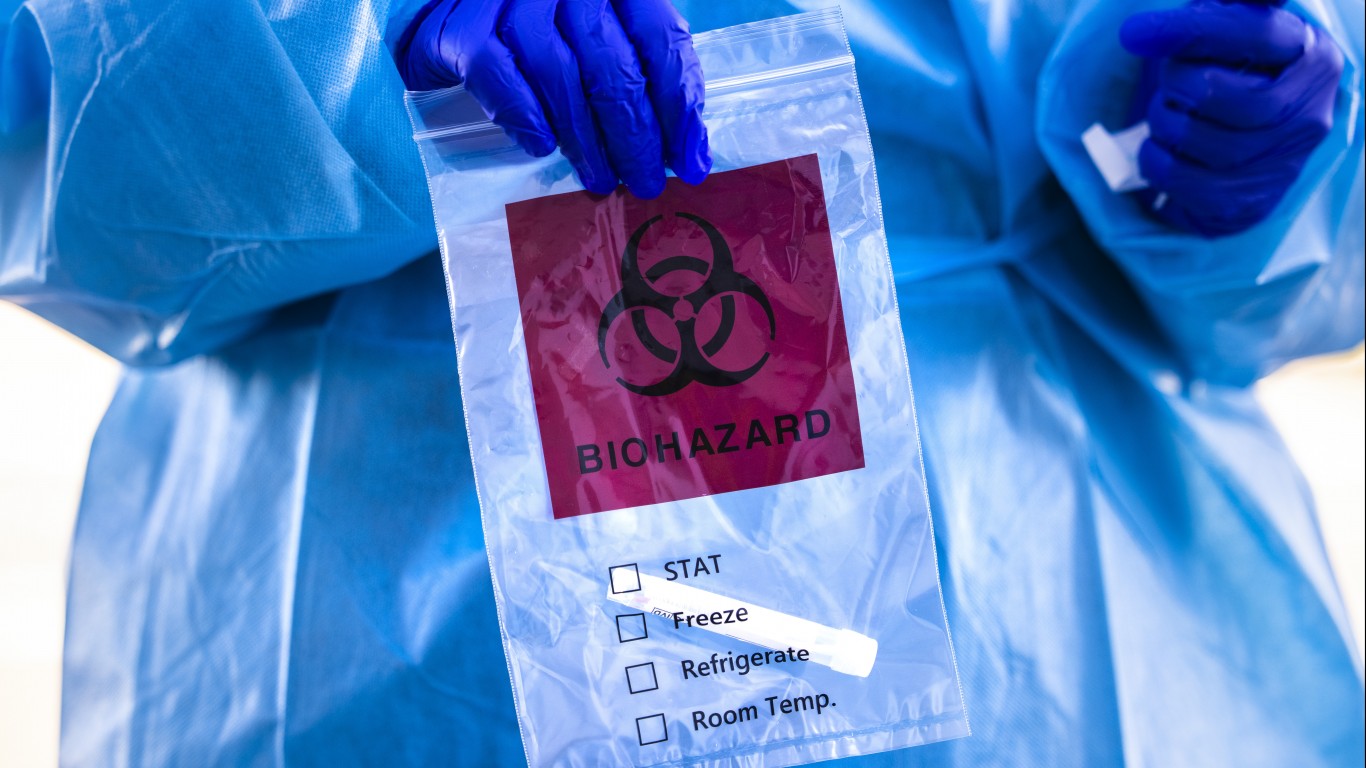Health and Healthcare
COVID-19: This Is the State Where Young People Are Suffering Most

Published:

The rate of the spread of COVID-19 had slowed across America. Despite a new surge, increases in daily fatal and confirmed cases are still about half what they were three months ago. Nevertheless, 577,224 Americans had died as of Saturday, which is about 20% of the world’s total. The global death total just moved above a staggering 3 million. Confirmed cases have reached 32,244,617 in the United States, or about 23% of the global number. Hospitalizations, which were over 100,000 a day during the peak wave, have dropped into the thousands.
Variants have become a large part of the conversation among public health officials and epidemiologists. One variant, first identified in the United Kingdom and known as B.1.1.7, is more transmissible than the strain that was dominant in the United States over most of the pandemic. The Centers for Disease Control and Prevention (CDC) also officially tracks these other variants: B.1.351, P.1, B.1.427 and B.1.429. Worries are that some may be more deadly than others and that vaccines may not protect against one or more variants.
Scientists believe that new variants will continue to appear, some of which may originate in America and others that may come from overseas. Last week, it was announced that “Scientists at the Texas A&M University Global Health Research Complex (GHRC) have identified a variant of the COVID-19 virus — ‘BV-1’ — that could present a new challenge to public health.”
At this point, according to The New York Times, 42% of Americans have been given at least one dose of a vaccine and 28% are fully vaccinated. As of Friday, 290,685,655 doses have been delivered, and from those, 225,640,460 shots have been given, or about 78%.
There has been a debate among scientists and doctors about when people will need additional doses. Some of this has to do with how effective vaccines are against variants.
According to the top story in The New York Times on Monday, no state is having a more difficult time with the battle between variants and vaccination rates than Michigan. More and more young people, who are not as likely to be vaccinated as the older population, are up against an aggressive COVID-19 variant. The newspaper reports:
Across Michigan, which is experiencing by far the country’s most dangerous outbreak, more younger people are being admitted to hospitals with the coronavirus than at any other time in the pandemic. Michigan hospitals are now admitting about twice as many coronavirus patients in their 30s and 40s as they were during the fall peak, according to the Michigan Health & Hospital Association.
The B.1.1.7 variant is responsible for the rapid spread, according to most experts who have reviewed the Michigan situation. It also appears that the variant makes people sicker than the version that accounted for most of the U.S. spread from January 2020 to early this year.
What is the lesson from Michigan? It is at least twofold. First is that young people who have not been vaccinated must rely on traditional defenses like mask-wearing and social distancing. The other lesson is that it is possible for the growth of a COVID-19 variant can outrace the vaccination rate, at least for a time.
Click here to see which city in each state has the most COVID-19 cases.
After two decades of reviewing financial products I haven’t seen anything like this. Credit card companies are at war, handing out free rewards and benefits to win the best customers.
A good cash back card can be worth thousands of dollars a year in free money, not to mention other perks like travel, insurance, and access to fancy lounges.
Our top pick today pays up to 5% cash back, a $200 bonus on top, and $0 annual fee. Click here to apply before they stop offering rewards this generous.
Flywheel Publishing has partnered with CardRatings for our coverage of credit card products. Flywheel Publishing and CardRatings may receive a commission from card issuers.
Thank you for reading! Have some feedback for us?
Contact the 24/7 Wall St. editorial team.